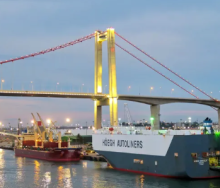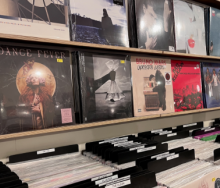Truckers suffer invasion of privacy because of in-cabin cameras live-feeding recorded footage through to the operation rooms of transporters, says Sefiso Nyathi, a truck driver who also serves as secretary general of the All Truck Drivers Forum and Allied South Africa (ATDF-ASA).
He denied that the organisation was behind the truck blockade on the N3 between Warden in Villiers, as was widely reported.
Yet Nyathi was quick to add that ATDF-ASA supports the strikers’ demands that led to yesterday’s disruption on South Africa’s most important supply-chain corridor.
These demands include that the price of fuel be lowered to R11.28 per litre, that foreign-registered truck drivers be disallowed from working in the local transport sector, and that corrupt Home Affairs Department officials who do not enforce work-visa requirements be dismissed.
As for the fourth demand, that in-cabin cameras be removed, Nyathi made a compelling case why the ATDF-ASA had sympathy for objection to some on-board video monitoring of trucks.
“It’s about our privacy,” he said as he stepped inside his own cabin to talk to Freight News.
“How can I have a conversation with somebody or a person from my family and someone else listens in. It’s not good.”
He explained that truck drivers did everything in their cabins, especially long-distance drivers.
“It’s my room, where I sleep.” Now there’s a camera watching, listening to the driver’s conversations, he said.
He added that sometimes truck drivers even bathed from buckets in their cabins when there were no roadside or truck park ablution facilities to use.
In a worst-case scenario, Nyathi said it was against the law to listen in on the private conversation of a person, trucker or not.
At the opposite end, though, is the argument that in-cabin cameras can help to enforce road safety regulations.
A recent incident of reckless driving by a trucker on the N11 between Volksrust and Newcastle was swiftly dealt with after Ni-Da Group reviewed recorded material to warrant the dismissal of a driver.
The company’s operations director, Pieter Kwakernaak, explained that the group’s trucks had three live-feed cameras on each rig: in front, in the cabin, and on the trailer section.
He added that not all footage was viewed while a truck was in motion, but that bad behaviour and related risk issues were flagged on a need-to-know basis.
“If a driver was talking on his cellphone while driving, for example, we will pick it up,” he said.
Even if the case of dangerous driving had not been picked up by motorists filming the swerving truck on a cellphone and posting the video on social media, Ni-Da would have noticed the incident and taken the necessary steps, Kwakernaak added.
At the time, Gavin Kelly, Road Freight Association CEO, said all members such as Ni-Da were expected to comply with a Core Code of Conduct to enforce road safety regulations.
Earlier this week it was also reported that Webfleet Solutions had said the use of technology such as on-board cameras could play a significant role in implementing private-sector safety strategies in South Africa.
This is especially important in a country where official road surveillance is often inadequate or out of order, contributing to South Africa being the most unsafe country in the world in which to drive – a conclusion reached by US driver trainer, Zutobi, following a recent road safety survey.
Webfleet sales director, Justin Manson, said without proper video monitoring “road users no longer have a deterrent to help them avoid reckless driving”.
But Nyathi said, even though ATDF-ASA members appreciated that cameras fulfilled a role on the outside of a truck, it was not necessary to have them inside cabins.
“Why? What are they looking at? Why are they listening to our conversations? It’s against the law.”













